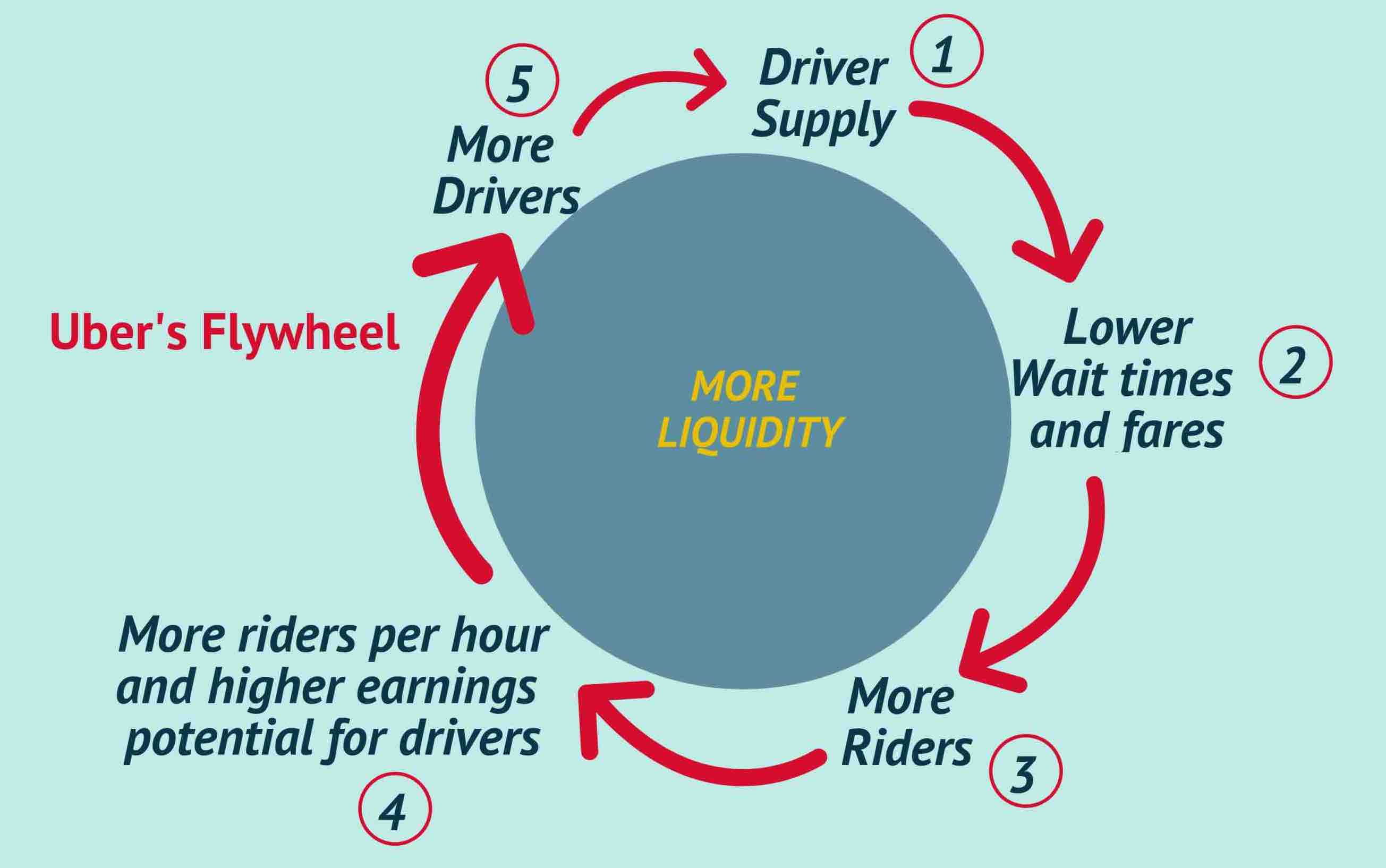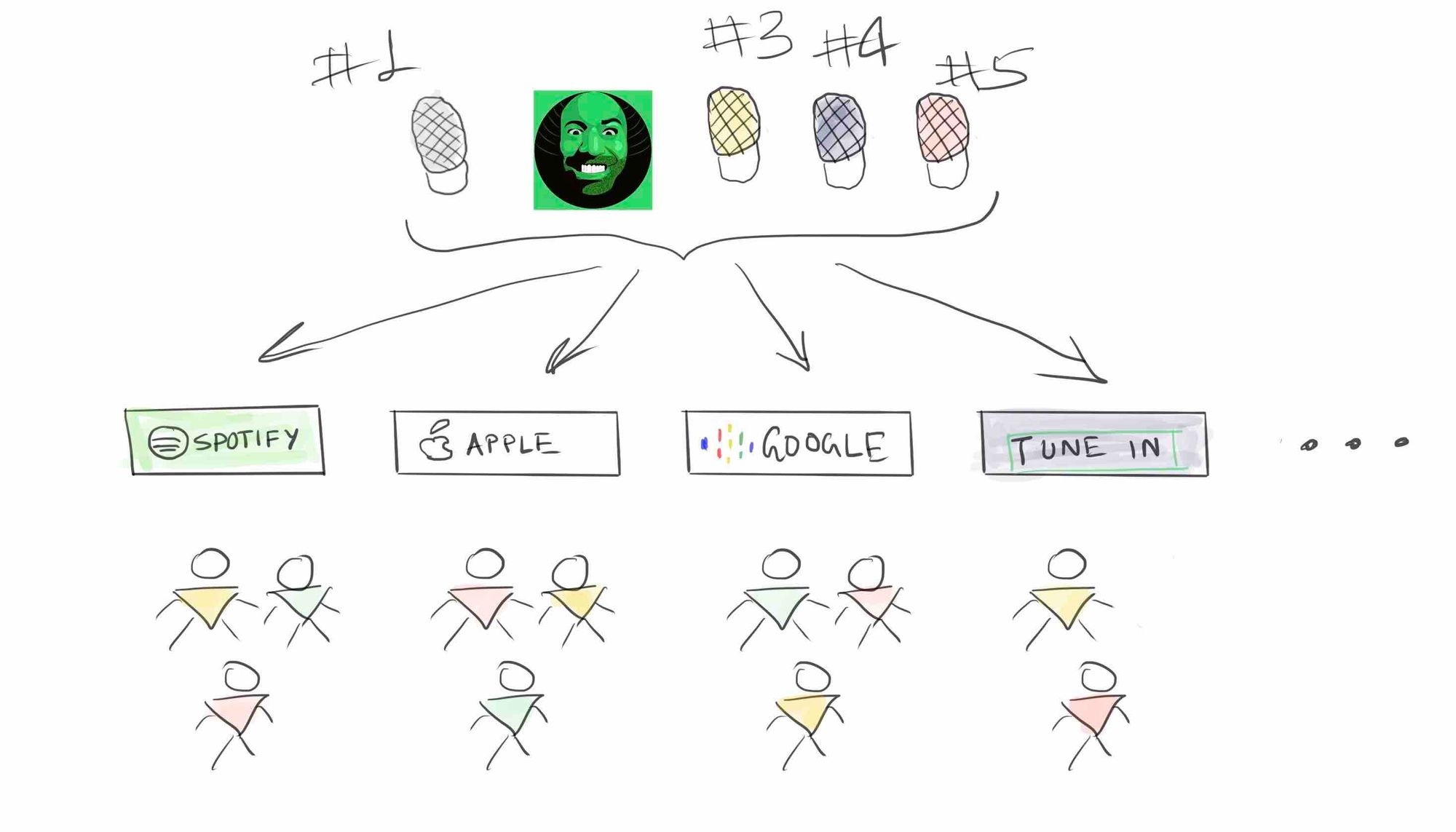There are two major ways to make money. You either create something out of nothing - a product or service that others are willing to purchase. Or you connect the people who sell ‘something’ with those who would buy ‘something’. In medieval times, traders used to make a ton of money taking risky journeys, sourcing items of value and selling it at places where the items might be required. Technically, there is another way to make money by walking up with a gun to someone and acquiring their possessions (or them for that matter). However, we’re going to keep things legit and not venture out there.
In modern times, as a lot of goods and services have become intangible and it’s much more easier to whip up a bunch of code, put it on the internet and boom - you’re now platform which connects buyers with sellers and are now generating value! Like every business, every platform eventually has competition. Basic law of economics - If you’re making a tooon money, someone WILL come in and try to steal your pie. For every Uber, there’ll be a Lyft; for every Ebay, there’ll be Amazon; for every Google, there’ll be Bing. Wait! Scratch that last one.
There’s one little challenge with a platform business. For a platform to succeed, it’s very important to be the biggest, most efficient one out there. Why is that the case? If you don’t have consumers, you lose your attractiveness to the partners providing service. If you don’t have enough products of partners providing good quality service, you lose your attractiveness to the consumers. It’s like a big-ass flywheel. Difficult to get going, but if you’re able to get it going, you can rip through the competition and diversify like no other business. This is called the winner takes all dynamic of marketplaces.

This brings us to the question - how to become the winning marketplace? Well, the answer varies for each ecosystem. In general, you need to bring in the creators or the providers of products/services first. As a customer, you wouldn’t want to go to an empty market. The market needs to be lively with content first. This is the strategy taken by almost all marketplaces. So, for a food delivery startup, it makes sense to get the restaurants and drivers online first. For a ride-hail startup, it makes sense to have the drivers on the platform first. For Etsy, it makes sense to connect to creators across the globe to put their wares on the platform first.
This all makes sense. But what if there are several platforms and they offer the same things? It would be like sabzi-mandis (grocery-market). If each market has the same offering, would a customer or a seller really pay the guys maintaining the mandi? If any mandi charges a hefty fee, the buyers and sellers can move to another one. So, in the long term, all the profits of the mandi would go down to 0 and would get into the pockets of either the sellers or the buyers.

There are a few ways in which platforms can become ‘pricey’. They can start selling products that just cannot be bought anywhere else. They can start providing additional services that other platforms don’t provide. They can also start producing articles/services which means they can make additional margins on what they sell. This is exactly what Netflix and Primevideo do - by creating original content. For spotify, this means signing up exclusive content. And that’s what they’ve done with ‘The Joe Rogan Experience’, paying them ‘uuuuge sum of 100 million $ to put his podcast exclusively on Spotify forever!
Can Spotify just pay money to all the podcasters out there to go exclusive on their platform? Well, they don’t have to pay off everyone. They just have to pay enough high value podcasters so that their unavailability on other platform pinches people. Content creation follows the power law like a lot of industries. Once they reach a stage where every avid podcast consumer would be willing to pay Spotify to access a bulk of their favourite podcasters, they would have won. Gradually, the smaller marketplaces would die out and only a couple of marketplaces would remain. Consumers would have only 1 or 2 alternatives to consume. And every producer would have 1 or 2 places where they can gather listeners or risk substantially reducing their outreach. That’s an amazing place to be for the platforms. But it’s a sad place to be as a producer and consumer of content.

The content producers cannot really negotiate if there are only 2 ways to distribute their content. They could launch their own app and website, but that is only possible for the bigger fishes, and even they would miss out on a lot of people who could consume their content. Once the marketplace reaches a monopoly/duopoly stage, they would be paid less for their content. Now music artists etc can make money on the side through concerts and their social media profile. Podcasters generally do not have that luxury.
In an extreme condition, the content producers can even lose rights to the content they produce. For example, the music artists do not own the songs they release under a music label. This sounds preposterous but is true. Imagine putting your heart and soul into something just to end up giving it away to a corporation. Spotify itself has certain rules that allow them to tamper with the content produced by artists and insert contextual ads into podcasts. When you hear words like contextual, personalization, advertisements, you can be sure there is some shady stuff happening under the hood.
Right now, as podcasters, you have the choice to say no to Spotify and go to another platform which has a decently big listenership and would be willing to not edit your content. That is some power! But with the deal like ‘Joe Rogan x Spotify’, things are changing. This is a typical game theory scenario called the Prisoner’s Dilemma. Check out the payoff matrix below to understand better.
You have 2 players of the game - Joe Rogan and other podcasters. In a case where no-one sells out, no platform would have a monopoly and everyone would keep earning a decent amount of money. But if one of them sells out, that person would make a ton of money upfront - at the cost of pushing the ecosystem towards a platform consolidation. The others would then see their earnings decrease gradually over time. If all of them sell-out at once, everyone’s earnings would decrease as the platform would become a monopoly and could then move ahead to suck everyone dry - generating “shareholder value” in the process at the cost of a thriving podcasting ecosystem.

If you were able to understand this, you get where this train is going.
In all the cases, the average amount of money made by the podcasters would go down substantially. The train is going to collect all the gravy from the podcasters, load it up, and take it to platform town. I would be short podcasters, long spotify.
